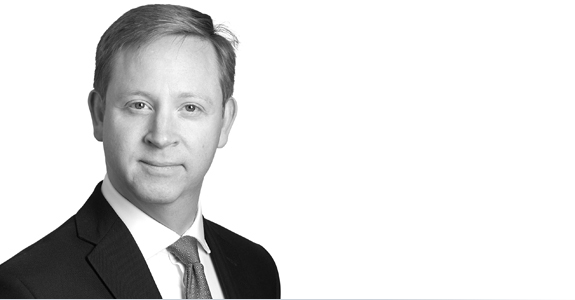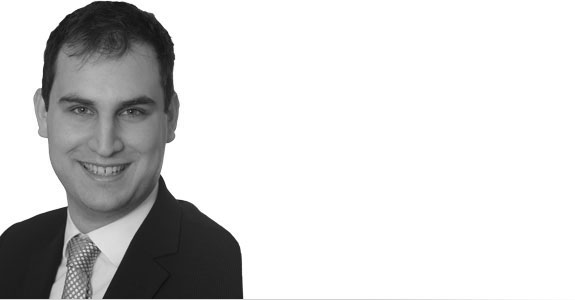Briefings
Sulphur emissions in Northern Europe: Five years on, June 2020
Back in June 2017 we published an update1 on compliance with sulphur oxide (SOx) emissions limits in the Baltic Sea Emissions Control Area, where since 1 January 2015 vessels have not been permitted to burn bunkers with more than 0.10% m/m SOx content. Much has changed since then.
The long-awaited global SOx emissions cap of 0.50% m/m SOx content became effective on 1 January 2020 (through MARPOL Annex VI), and at the time of writing we are facing the extraordinary effects of the Covid-19 outbreak. In this update, we hope to inform readers of developments in connection with the enforcement of SOx emissions caps in Emissions Control Areas (ECAs).
Enforcement and technology
Many Northern European states have been increasing investment in enforcement technology. For instance, the Norwegian Maritime Authority has followed the Danish approach of obtaining drone technology to monitor SOx emissions cap compliance and has been using this extensively.
Another technological development is the launch of the EU’s Intelligent Sea project, which ‘aims to improve the safety and efficiency of maritime fairways through digitalization’. One of the project’s objectives is to test compliance monitoring of SOx emissions through using smart floating navigational buoys, also known as ‘sniffer stations’. The Swedish Maritime Administration and the Finnish Transport Infrastructure Agency are partnering for the project’s implementation, and the first buoy tests are scheduled to be carried out in 2020 near the Finnish port of Naantali.
Even though investment in enforcement appears to be increasing, inconsistency remains a key issue. As noted in our previous update, there are some concerns regarding inconsistent monitoring across the Baltic Sea ECA. Studies by Chalmers University of Technology in Gothenburg suggest that compliance near well-monitored areas with fixed measuring stations is far greater than compliance near the ECA borders, where checks are less likely and therefore violations more prevalent.
We made reference in our last update to the Concentrated Inspection Campaign (CIC) on SOx emissions compliance, which was to be carried out in 2018 by the Paris MoU on Port State control, of which all the states around the Baltic Sea are members. The campaign was held from September to November 2018, with the aim of increasing awareness of the importance of compliance with SOx emissions caps, as well as highlighting enforcement as a top priority for Paris MoU member states. This campaign may have been more impactful in Paris MoU member states outside of the Baltic Sea, where SOx emissions limits are currently higher than the 0.10% m/m cap.
COVID-19
The Covid-19 outbreak has already had a direct impact on the enforcement of SOx emissions caps in the North Sea ECA. In April 2020, the UK Maritime and Coastguard Agency confirmed the temporary suspension of SOx cap compliance checks in UK ports in order to ease the outbreak’s impact on supply chains. We expect that limitations such as restrictions on the movement of personnel, border closures, and other emergency measures taken in response to the outbreak are likely to also affect other ECA states’ enforcement of SOx emissions caps, even where no formal suspension of enforcement is in place.
This approach to preserving supply chains in the face of the outbreak has wider global appeal. The China Shipowners’ Association has issued a proposal to the Chinese authorities requesting a suspension in SOx cap enforcement in Chinese waters. Short-term relaxation of SOx cap enforcement globally may become one of the tools that states utilise to lessen the outbreak’s detrimental impact on supply chains.
The potential longer-term negative economic impact of the outbreak may affect ECA states’ resource allocation priorities, possibly reducing the resources available to commit to enforcement (for example, costly drone projects). It remains, however, yet to be seen how the Covid-19 outbreak will unfold, and all market participants will be monitoring the situation closely.
Extensions
A further development with regard to the North Sea ECA is the UK Government’s proposal in May 2019 to hold a consultation on the expansion of the ECA, to cover more of the UK’s waters. Currently, the North Sea ECA only covers the UK’s Eastern and Southern coasts, excluding busy ports such as Liverpool and Belfast Harbour. Any such extension will be of particular interest to market participants operating in these areas.
IMO 2020
As readers will be aware, the global SOx emissions cap of 0.50% m/m was implemented in January 2020. We do not expect this to significantly impact compliance within ECAs, as the global cap is less stringent than that of the ECAs. Nevertheless, it has put emissions concerns at the forefront of both operators’ and regulators’ minds, and is an important step in addressing the shipping industry’s contribution to air pollution.
We have seen some enforcement action in relation to the global cap. Singapore’s Maritime and Port Authority appears to be strictly enforcing the rules, and detained two vessels in April 2020 for using non-compliant fuel. The Australian Maritime Safety Authority held a bulk carrier in May after it found non-compliant fuel in one of the vessel’s service tanks. The consistent enforcement of the relatively new global emissions cap will certainly be challenging, and we may see authorities draw on the experience and technology of ECA states.
Future considerations
Investment in technology by ECA states indicates a desire to improve the effectiveness and consistency of SOx emissions monitoring. Unfortunately, we expect the Covid-19 outbreak and the economic consequences to be the dominant issues in the near future. A harsh economic climate will make the objective of fair and efficient enforcement all the more challenging. Nevertheless, the trend in the maritime sector over the past few years has been an increasing focus on emissions controls. Looking longer-term, we expect this to continue.
For more information please contact;
Gudmund Bernitz
Partner
T +44 (0)20 7264 8413
E gudmund.bernitz@hfw.com
Alex Kemp
Partner
T +44 (0)20 7264 8432
E alex.kemp@hfw.com




